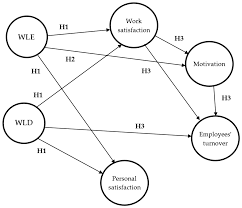
A globalized economy where multinational companies such as AstraZeneca are getting more and more global existence requires presence of expatriates in international operations to provide leadership, transmit knowledge and maintain international business continuity. Nonetheless, expatriate management has its complicated nature, let alone in case of economic uncertainty, work-life stressors, and cultural pressures. In the gear of three strategic observations to expatriate management, the following paper addresses three aspects including the practices of AstraZeneca, working and life balance issues, and recession sequenced choices.
These insights are vital for students and professionals in human resource management, available in more depth at StudyCreek.com and DissertationHive.com.
AstraZeneca is a multinational pharmaceutical company that has been known to have an organized exiled management system with a defined set of policies, talent mobility plan and development strategies. The firm focuses on grooming its leaders by providing international assignments and tends to choose the members of the top-potential employees pool.
Nonetheless, AstraZeneca has also been accused of providing little support to their cultural integration and having an uneven family support services particularly in highly stressful assignments. Although the firm uses logistical assistance to transfer its employees and offers attractive remuneration plans, its strategies at times fail to present a personal touch to deliver exports satisfaction in any culturally diverse and emotionally stressful setting.
To capture value out of such company models, such websites as StudyCreek.com present practical and useful information, which is valuable to students of various company models, and how companies such as AstraZeneca cope with the challenging issues associated with HR in international markets.
As per the refugee Work/ Life Balance Survey, 2007, 65 percent of the expatriates have noted that the issues dealing with management of their career at a new country and the management of their personal lives have all added stress to the expatriates. Such imbalance most of the times results to burnout, low performance and early recall to missions.
In order to counter this, institutions are to consider:
The combination of these strategies will assist expatriates not only with employee emotional support but also an increase in productivity and retention. Students who are inclined to work-life balance programs on a deeper academic level are encouraged to address professional writing guides and case analyses available at DissertationHive.com.
Economic recessions often pressure companies to reduce expatriate programs due to high costs. However, cutting expat assignments entirely can hinder global growth. Instead, organizations should focus on:
In careful terms of the selection process, which is clear in its focus on psychological robustness as well as cross-cultural understanding, chances will be significantly more likely that the assignment will prove to be successful. Once accuracy in selection takes priority as an objective among companies, chances are high that the companies can not only control expatriate failure but also obtain competitive gains especially around the globe even in times of recession.
It is an area that is full of opportunities and issues in terms of management of expatriates. The case in which AstraZeneca was in and the work-life balance challenges, the challenge of economic disaster indicates why global mobility solutions cannot be any other than responsive yet human-friendly solutions. Students (and professionals) can further their learning on these themes by taking professional courses and the like, on StudyCreek.com and DissertationHive.com. Finally, the answer to unlocking the effective potential of the approach and exposing the risks that may be associated with expatriate programs is to consider both potent pros and harsh cons and disadvantages of the strategy.
Below is a sample question:
1. Critically analyze AstraZeneca’s expatriate management practices.
2. According to the 2007 Expatriate Work/Life Balance Survey, 65% of expats report feeling the strain of managing the demands of work and home, leading to more anxieties at home and at the workplace. What steps can an organization take to mitigate this?
3. What decisions related to expatriates could organizations take to maximize the benefits to the company despite ongoing economic recessions? Do you think a company that paid more careful attention to selection could further boost their chances of success?
Below is the answer to the sample questions:
Title:
Strategic Expatriate Management: The AstraZeneca Experience, the Challenges of Work-Life Balance and Decisions Made in the wake of the recession
Name: [Full Name]
Title of the course: Human Resource Management
Teacher: [Teachers Name]
Date:
Expatriate management has emerged to be a vital pillar of the multinationals in a globalized business environment. The deployment of expatriates in companies such as AstraZeneca is strategic and the company uses this method to facilitate transfer of knowledge and coordination of international operations amongst other things. Nonetheless, several issues including inadequate work-life balance, increment of costs during economic recession and inefficient procedures of selection usually spoil the achievements of these international assignments. In this paper we are going to critically review the expatriate practice by AstraZeneca, strategies that can be used to enhance the work-life balance of expatriates and how organizations can manage the expatriate related decisions during the recessionary periods.
AstraZeneca has a longstanding reputation of being the innovator of design in world pharmaceuticals and expatriate management is of great value to its international expansion strategy. The company is also famous in initiating employees with high potential into the global region to fast-track their leadership advance and experience arms-length cultures. Formality in terms of structured policies, competitive relocation packages, and definite plans about repatriation show the level of commitment to expatriates, demonstrated by AstraZeneca.
Not that ASTRAZENECA expatriate management is flawless however. First, the company has not been consistent in cultural integration and family support, although there is logistical support. Other reasons why expatriates experience isolation in host countries include a lack of local mentors and inadequate preparation prior to the departure. Moreover, it is claimed that the AstraZeneca system of performance evaluation is too home-country centric, and it does not fully capture the niceties of functioning in foreign locales.
These failures highlight an important lesson to practitioners in Human Resources expatriate management; to be efficient in the work they perform is not enough, they must be emotionally intelligent and culture competent. Human resource students must question how multinational companies can ensure the better satisfaction and retention of expatriates by adopting these somewhat less influential factors.

A survey conducted in 2007 by Global Work and Life indicated that sixty five percent of expatriates are not able to obtain work/life balance thus experiencing increased stress levels, strained marital relationships and reduced work performance. These results have great application in the formulations of expatriate programs that are carried out by human resource professionals.
The following are the possible interventions that an organization can employ to correct these concerns:
Pre-Departure Counseling: Providing emotional and psychological training to the expats as well as their families.
Trainers and Locals: Local culture education and training: The provision of instruments to facilitate a smooth culture transition and reduce alienation.
Work schedules: Adding flexibility such as involving hybrid/remote work to accommodate familial needs.
On-Site Family Support Services: Providing education, childcare, and counseling opportunities in host nations.
Inconsistent Communication with Headquarters: Providing a sense of belonging and closeness to expatriates to make them feel important.
Such measures will make the lives of the expatriates a bit easier, increase their well-being and extend assignment terms with more satisfactory outcomes. The examples give HR students an understanding of why it is vital to draft policies that go beyond mere technical implementation to consider the entire need of the global workforce.

Recession is a severe threat to expatriate program because of the expensiveness of relocation, accommodation, education, and perks. Nevertheless, reducing foreign jobs blindly may result in the lack of global competitiveness, inability to develop strong leadership, and complicate the international operations of the company.
To keep on utilizing expatriates in a fairly economical manner even during recessions, the HR leaders have the option of:
Move to Short-Term Assignments: There is a need to promote sending employees to work on certain projects overseas because it will lower the cost in the long term and maintain moveable Virtual International
Assignments knowledge: Software allows conducting international cooperation without taking people abroad and wasting resources.
Standardize Expatriate Benefits: the spending can be optimized by adjusting packages depending on the importance of the assignment and the situation of host countries.
Enhance Home Grown Talent: Home grown Talent can also be developed and this can make a company less dependent upon expensive expatriates in the long-term.
Cautious selection is one of the best tools of use in the period of recession. By focusing on those individuals who are cross-culturally competent, adaptable, and ready to go to work overseas, the companies can drastically enhance the success rates of their international assignments.
Organizations that neglect selection rigor often face premature returns, failed assignments, and poor return on investment.
For human resource students, this emphasizes that selection strategy is not a minor administrative task, but a cornerstone of international HRM success.
The expatriate model by AstraZeneca, as well as the industry issues that either resulted or might have definitely contributed to work-life balance and economic stability can be instrumental to HR learners and HR practitioners as well. Expatriate management requires an all-round solution-both strategic pursuit with the well-being of employees. Organizations can transform international assignments, which have been treated so far as costly liabilities, into strategic assets by improving selection procedures, accommodating family needs and responding to the economic realities. HR professionals should be strategic, emphatic, and metrics-based when creating global mobility plans that not only endure but also prosper in stress and ambiguity.
Delivering a high-quality product at a reasonable price is not enough anymore.
That’s why we have developed 5 beneficial guarantees that will make your experience with our service enjoyable, easy, and safe.
You have to be 100% sure of the quality of your product to give a money-back guarantee. This describes us perfectly. Make sure that this guarantee is totally transparent.
Read moreEach paper is composed from scratch, according to your instructions. It is then checked by our plagiarism-detection software. There is no gap where plagiarism could squeeze in.
Read moreThanks to our free revisions, there is no way for you to be unsatisfied. We will work on your paper until you are completely happy with the result.
Read moreYour email is safe, as we store it according to international data protection rules. Your bank details are secure, as we use only reliable payment systems.
Read moreBy sending us your money, you buy the service we provide. Check out our terms and conditions if you prefer business talks to be laid out in official language.
Read more